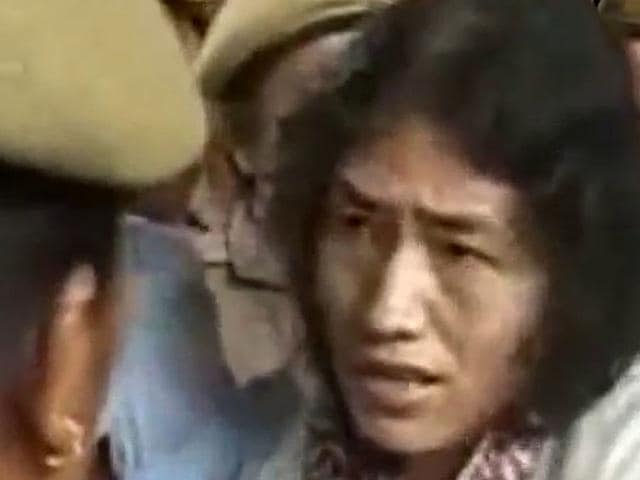Sharmila is not allowed to die because her Santhara is political
The state won’t allow Irom Sharmila, 41, to die. They arrest her, jail her for a year and force-feed her through the nose—an act of torture according to World Medical Association—because she runs afoul of Section 309 of the Indian Penal Code that criminalises attempt to suicide. The process repeats.
In the hilly, embattled state of Manipur, there is an annual ritual: the arrest, jail and release of a woman who has been trying to commit suicide by fasting for the past 15 years.

She is currently fasting until death to demand the repeal of the Armed Forces Special Powers Act (AFSPA) that provides unfettered powers to security forces to shoot at sight, arrest anybody without a warrant, and carry out searches without consent.
The Act was slapped after Manipuri groups began the fight for independence from India in the 1980s. But the state won’t allow Irom Sharmila, 43, to die.
They arrest her, jail her for a year and force-feed her through the nose—an act of torture according to World Medical Association—because she runs afoul of Section 309 of the Indian Penal Code that criminalises attempt to suicide.
The process repeats. Far away from Manipur, in Jaipur, an octogenarian of the tight-knit Jain community is nearly 50 days into her fast. There is also a steady stream of visitors to the household – relatives, people from the community and religious leaders – turning it into pilgrimage of sorts.
According to her family, she wants to practise Santhara, a form of suicide. Here there is no effort to force-feed her or stop her from committing suicide.
A few days ago, the apex court stayed a lower court’s ban on Jain religion’s centuries-old religious suicide ritual. Reports say, in the first half of 2015, around 118 Jains performed Santhara across India.
So, does it mean you are free to commit suicide for a religious purpose but not to make a political point? The answer appears to be yes. Irom Sharmila’s death could set off a wave of unrest in the state marred by political discontent since its merger with India.
It could alter the Centre’s gameplan, if there is one, for the north-eastern state. It is not my case that Irom should commit suicide, but the test of a true-blue democracy is letting a citizen live with the knowledge that he or she has the right to die for reasons of their choice.
It is a fact that India is close to repealing the IPC Section that criminalises attempt to suicide, but it hasn’t done it yet.So, going by Section 306 which criminalises aiding and abetting suicide, it is arguable that religious beliefs are assisting the death of Jaipur octogenarian’s case.
The supporters will have to try really hard to convince the Supreme Court that Santhara is not suicide because only the method is different, the outcome is always death.
But, Jains believe the superior motive behind Santhara sets it apart from other suicides.
But that is a subjective philosophy. For Irom, there can be nothing superior than freedom from AFSPA, which has proved to lend impunity to security forces for wanton violence.
(Views expressed by the author are personal. He tweets at @journalist10)





